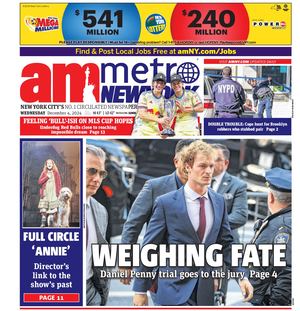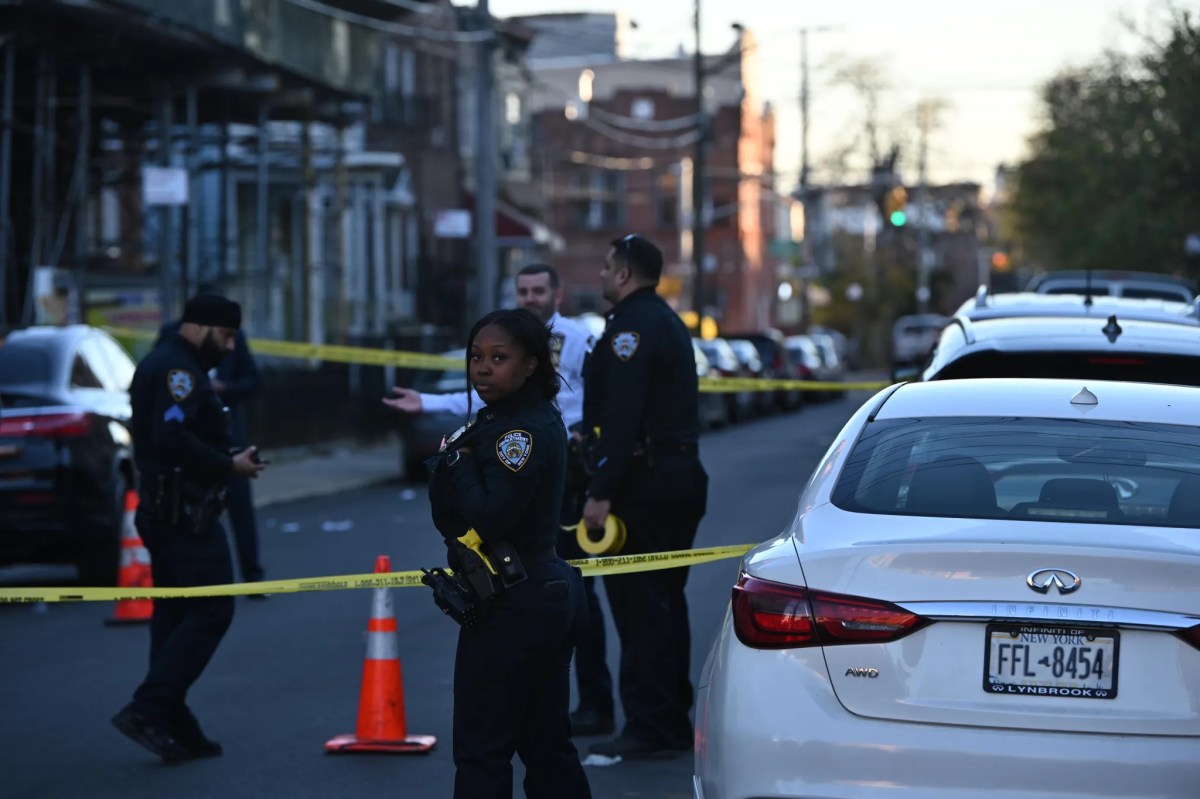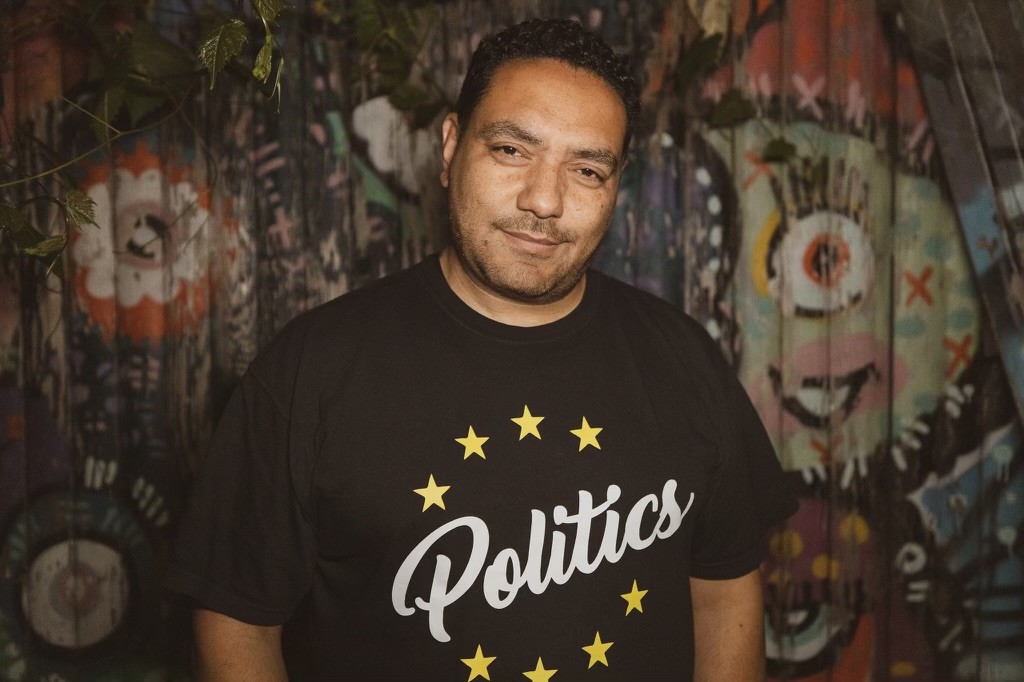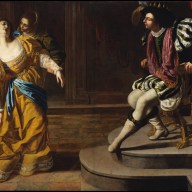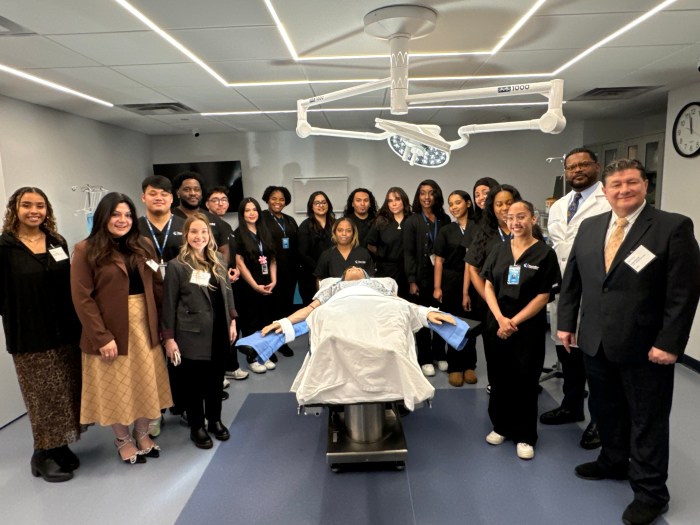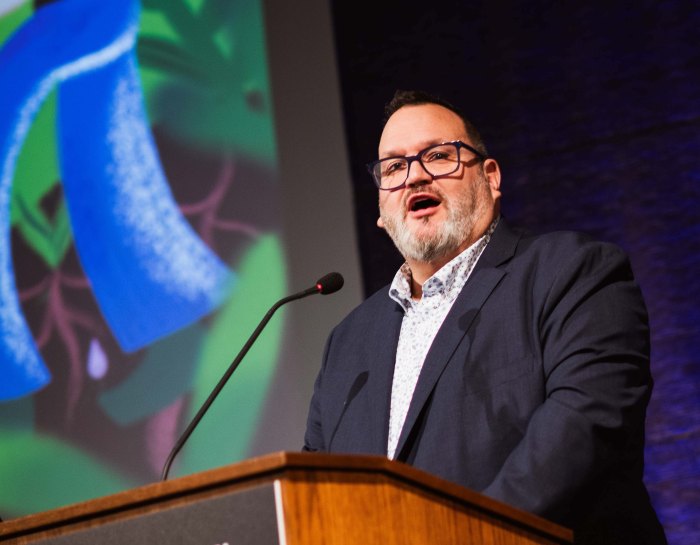By JERRY TALLMER
Charles Grodin draws from real life in new play
From a single windowless room facing an airshaft with bathroom in the hall in a fleabag hotel on Upper West Side Broadway, it’s a long way to a sharehold and a seat on the board of a hoity-toity Fifth Avenue co-op, and Charles Grodin has known both.
He didn’t put the fleabag hotel into his play that opened February 9 at the theater called 59E59. He did put the co-op board in. In fact, the play is all about that co-op — or by extension, any such co-op — and it’s called “The Right Kind of People.”
Grodin has traveled far and wide, from the 1950s until now, on stage and in films and television, on the strength of what the Internet Movie Data Base characterizes as “petulant loutishness … [s]eemingly miffed or angry … strictly tongue in cheek.”
I don’t normally hang out with present or past members of the boards of hoity-toity co-ops, but Charles Grodin is someone I’ve known and liked for more years than either of us want to say. He co-stars with Robert De Niro in one of the most enjoyable, replayable movies ever made, Martin Brest’s 1988 “Midnight Run” — Grodin as an absconding accountant to the mob, De Niro as the bounty hunter hired to track him down, hand him over to the feds if the mob doesn’t get them both — and I can assure you that all that petulant loutishness in or out of “Midnight Run” is really an act.
What’s not an act is Charles Grodin’s nervous unsureness about almost everything.
The pivotal concern at board meetings in “The Right Kind of People” is, of course, keeping the wrong kind of people out — blacks, browns, Jews, actors, single women, non-rich persons. It’s also a pivotal concern in all the electioneering and infighting that goes on in corridors, lobbies, and behind closed doors from one board’s tenure to the next.
Tom Rashman, a co-op shareholder and member of this particular board, is a pretty nice, fair-minded guy in his 40s whose uncle, on the same board in the same building, is a reactionary bigot. That the uncle is also Tom’s surrogate father, and that the two men 20 years apart really like one another doesn’t make things any easier.
“I would pretty much be Tom, the play’s protagonist,” Grodin said after rehearsals one recent afternoon. “Except I didn’t have a surrogate father.”
Tom has a lot of doubts, doesn’t he?
“Oh yeah,” said playwright Grodin. “Nobody’s a villain. We’re still working on that” — he, director Chris Smith, and their cast. “But then I’ve been working on this play 10 years. This is around the 85th draft. Which is nothing. My play ‘One of the All-Time Greats’ was done in 1971 in Nyack and in 1992 at the Vineyard here in the city.”
Grodin and his wife Elissa Durwood, a critic for the London Times, have lived in Connecticut for the past 12 or 13 years — “ever since I left Fifth Avenue.” Somehow an old haunt comes up: “The Russian Tea Room’s still there, isn’t it?” Sorry, Charles, it’s been gone almost four years. So in fact you lived on Fifth Avenue and got on that board?
“Oh yeah, I got on it,” said Grodin, with the poker face of the cat that licked up the cream. “And not only on that board, which was overthrown, as in the play, but on the board that overthrew it. Everything in the play related to board activity is true — was either what I witnessed personally or what I was told by one particular attorney.”
He stopped and — in the good old Grodin way — achieved a mixture of seriousness and a choked-off laugh in delivering the next statement:
“It just struck me the other day that this all took place on the East Side, which shouldn’t be a shock, but now, ironically, on February 7, 2006, two days before the play’s February 9 opening, I [was] interviewed by a co-op board at a building on the West Side.
“That’s why I’m glad the play takes place on the East Side,’ he added dryly.
Charles Grodin, son of the late Ted and Lena Grodinski, was born in Pittsburgh, Pennsylvania, April 21, 1935. His father sold supplies to cleaners, tailors, dressmakers. He got to New York in the 1950s, supported himself as a taxi driver and $1-an-hour Pinkerton night watchman.
Those were the windowless fleabag-hotel days. He went to acting classes under Lee Strasberg, Uta Hagen, and others. “Acting teachers are abusive. They make fun of you.”
Uta Hagen did that?
He nodded Yes. “I’ve read Boleslavsky on acting until I’m ready to take a nap. I could tell you all you need to know about acting in two seconds: Listen to the other person and then respond. Which has nothing whatsoever to do with all those imaginary [sense memory, etc.] techniques.” Pause. “The problem is: How to do it?”
Back at the time of Grodin’s very first New York appearance as an actor, in something called “Don’t Destroy Me,” way, way Off-Off somewhere he can’t remember, he asked agent Barry Levinson “if I should have pictures made.”
The answer was Yes.
“ ‘Sure,’ Barry said, ‘have some made. Then all the people who don’t want to see you will know who it is they don’t want to see.’
“So I’m in this ‘Don’t Destroy Me’ thing somewhere, and on some nights there are as few as two people in the audience. One night the director came to me after the show and told me that Hume Cronyn, who had been out front, had said: ‘That boy’ ” – meaning me – “could be very good once he gets over his problem.’
“I asked the director: ‘What problem?’ She said she hadn’t asked Mr. Cronyn. To this day, I still don’t know what problem.”
And will never know. Hume Cronyn’s as gone as the Russian Tea Room. Charles Grodin, actor, author, director, talk-show talker, parent (three daughters from two marriages), playright, is still here — one of the right kind of people.
